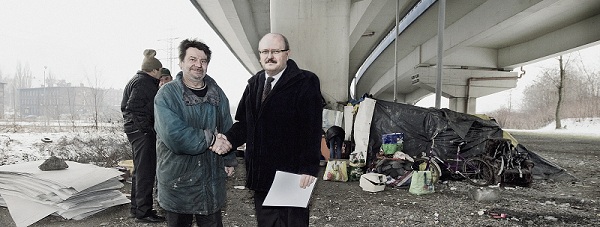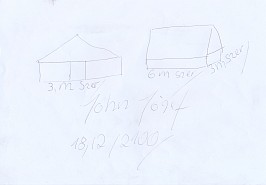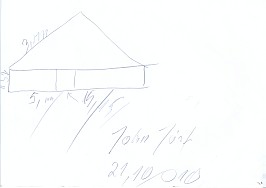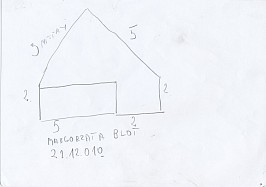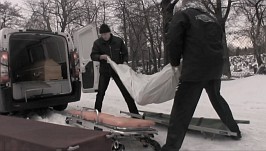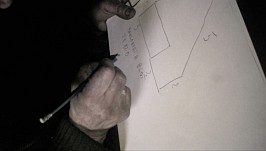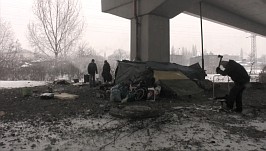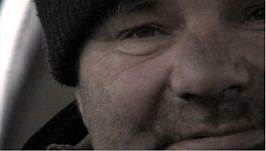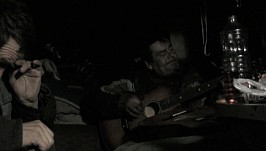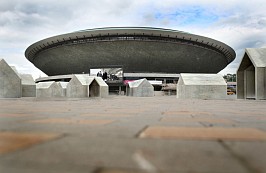Łukasz Surowiec
born 1985 in Rzeszów
2010 Diploma, Academy of Fine Arts in Cracow
2009 – 2010 Universität der Künste Berlin
2008 – 2009 Academy of Fine Arts in Poznań
2005 – 2006 Cracow School of Art and Fashion Design
2000 – 2005 Secondary School of Fine Arts in Rzeszów
2008-2009 Ministry of Culture and National Heritage grant
2010 Municipality of Cracow artistic grant
Individual exhibitions:
2011 Bytom, CSW Kronika, Happy New Year – documentary, installation, object, photo montage
2011 Cracow, Wyspiański Pavilion, Never Been, Never Am, Never Will Be Here – video installation
2010 Cracow, Art Aganda Nova Gallery, Nice to Meet You – object, sculpture, video
2010 Cracow, ASP Sculpture Gallery, What’s the Use of Interpretation – installation
2005 Rzeszów, Pod Ratuszem Gallery – painting, sculpture
Collective exhibitions (selected):
2011 Warsaw, CSW Zamek Ujazdowski, Out (of) Place – video
2011 Cracow, MOCAK, Vordemberge-Gildewart Foundation Award – video
2011 Gdańsk, IS Wyspa, Alternativa – video document
2011 Berlin, Germany, Galerie Petra Vankova, (un)Polish – video
2011 Zielona Góra, Focus Mall, ARTificial – interventions
2011 Warsaw, Leto Gallery, Art Nobody Has Seen – object
2010 Kutna Hora, Czech Republic, Start Point Prize 2010 – review of best European art school diplomas
2010 Warsaw, Leto Gallery, Don’t Even Think About It – video
2010 Berlin, Germany, Rundgan, UDK Berlin – sculpture, video
2010 Cracow, Jewish Culture Centre, Foreign Body – 3D animation, object
2010 Poznań, Old Abattoir, Artenalia – video
2009 Minsk, Belarus, Hejnał Expedition Art Festival Minsk 2009 – object, performance
2009 Poznań, Eskulap Gallery, Interior Limits – performance
2009 Rzeszów, Municipal Gallery – post-competition exhibition, Limits of Drawing – video, object
2009 Cracow, PWST Gallery – post-competition exhibition, Limits of Drawing – video, object
2009 Cracow, Forum Hotel, Illumination II – video
2009 Cracow, Photography Month Building, Illumination – interactive installation
2008 Toruń, Wozownia – Polish drawing exhibition – object, video
2008 Cracow, Old Bakery, Integralia 2008 – interactive objects
2008 Gdańsk, Shipyard, Shadows Which Have No Substance – environment
2008 Cracow, Kazimierz Gallery, Deep in Coffee Soul – sculpture
2007 Jarosław, BWA – post-competition exhibition – object
2007 Cracow – Festival of Student Performances, Synestezja – installation, object, video
2007 Cracow, ASP Gallery, Towards Wyspiański – installation
Happy New Year is a film by Łukasz Surowiec , made in an illegally-built house in the centre of Katowice – the two-million capital of the Silesian conurbation. The homeless constructed this makeshift dwelling to the best of their skills, refusing the pseudo-social help from the State. Refusing to live in a shelter. Choosing a life on their own terms – back to the hunter-gatherer times, living from scrap metal collection, some begging and petty trade in open-air markets. The main protagonists, Józef John and Marta, also “animate” the social life of other homeless people in the neighbourhood. Their house has become a meeting place. The artist says: “It’s a story of a community which follows its own system of values, rights and duties to survive in the capitalist jungle. It’s a story of helplessness, dead ends, dreams of home and property which would not be taken away. They do not understand why squats are illegal. Why can’t they just stay there? They do not understand why people freeze to death. It’s a story of people whose existence is beyond the grasp of a neo-liberal politician.” The neo-liberal State has turned into an executor of a free market. In order to maintain “law and order”, it has stopped being its regulator. The “less state” slogans in fact lead to diminishing its social role, redistribution and social perspectives. Instead, what happens is more repression, confinement and the “ghettoisation” of poverty (see e.g. the so-called container housing projects on the outskirts of Bydgoszcz or Bytom, now also planned in Poznań and Katowice). The fantasy of rule in the name of “law and order” causes inequality. Demonising and depreciating the poor (“they only have themselves to blame”) is based on assuming the “commonsense” approach – rationalising which leads directly to justifying the logic of economic neo-liberal ideologies, fed by politicians lacking in alternative ideas, repeating that economy is unyielding and statistics never lie. What about those who do not fit, then? Łukasz Surowiec’s project is far from idealizing or fetishizing poverty, so typical of contemporary Polish cinema (sugary films like “Homeless Pitch” by Kasia Adamik or “Tricks” by Andrzej Jakimowski) or even some artistic projects, which are merely examples of “soft engineering” meant to dilute the real gravity of the problem. Surowiec’s film shows humiliation, homelessness, loneliness, threat (e.g. death of hypothermia, presented in the media as sensational statistics), but also – a distinct awareness of their own social position, including the calculation of a single day of homeless life (12-15 zlotys, according to the social welfare slip) and dreams of home which will never be fulfilled. The main heroes of the film use “incorrect” language, lashing the authorities in the only way known to them – for the crisis of democracy, in which the ruling class has lost its “social ear”, reserving criticism for the media and opposition, other players in this “spectacle of power”. The project is intended to go beyond gallery space and literally enter city space. In the final part of Łukasz Surowiec’s film, there is a repeated invitation for the mayor of Katowice. The two gentlemen – Józef John and Mayor Piotr Uszok – do meet in a large-sized, panoramic trick photo, chatting, smiling and shaking hands. Just an example of political fiction. The artist writes: “The rest is conjecture, a doctored plot shown in the photograph. The city mayor meets the homeless, their good intentions and tragedy convince him. Despite his right-wing, neo-liberal views, he helps them. He finds flats and work for them. He becomes a hero by giving up commonsense and rational, systematic action. In this way he sins against the society.” However, the photo montage of the meeting does not have to be fiction. Are we ready for such a meeting? Why not try? After all, real-life politics is about writing possible scenarios for the future. How would the film protagonists cope? How would they manage to run their households? Would they succeed in becoming part of the society which rejects them? In his project, Łukasz Surowiec consciously undertakes to engage in direct, unequivocal action. The so-called world of art often depreciates this practice, giving up the fulfilment of any aims, for fear of being labelled “journalistic”. This is left to other institutions, activists, etc. Let us not give up so easily. Let us not obliterate possible aims with the cliché of art’s ambiguity – in fact, it castrates its impact. Art is a self-instructive, flexible tool, opportunistically adjusting to the fast pace of changes in today’s world. Art as an experimental way of knowing offers itself where other domains fear to risk experimenting because they are limited by rationality. Art is not just meant to ask questions, but also to answer them. Łukasz Surowiec is straightforward in declaring that he “wants to give an answer which may lead to questions.” Social movements may originate from artistic postulates.
Stanisław Ruksza
